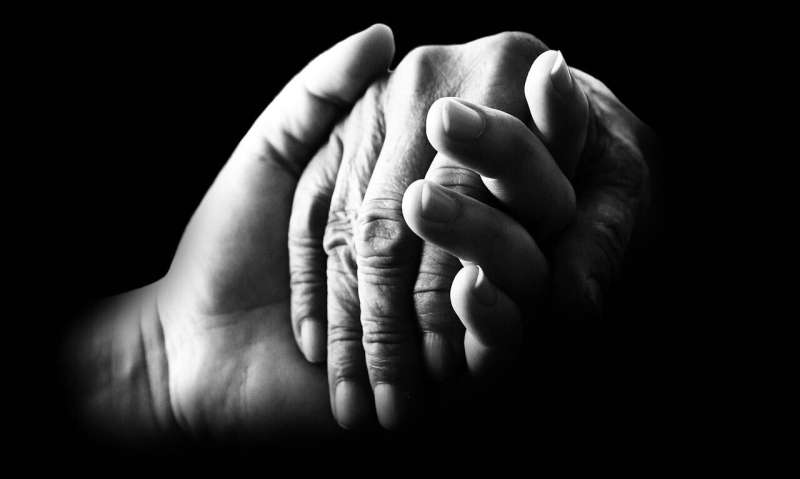Science
New Research Reveals Empathy Can Be Trained Through Rewards

A recent study from the University of Southern California has revealed that empathy is not a fixed trait, but rather a skill that can be developed through emotional associations. Published on July 29, 2025, in the journal Psychological Science, this research challenges the long-held belief that empathy stems solely from shared experiences or values.
Researchers at the USC Dornsife College of Letters, Arts and Sciences conducted a series of experiments demonstrating that individuals begin to care more about others when their happiness is linked to personal rewards. The study’s lead author, Yi Zhang, a psychology doctoral student, emphasized that the findings could reshape our understanding of empathy and its role in social interactions.
Empathy and Emotional Learning
The research employed a clever experimental design where participants observed a cartoon character experiencing various everyday situations, such as playing with a dog or falling off a bike. Following each scene, participants saw a number on the screen that represented their personal gain or loss. Over time, those who consistently experienced gains from the character’s positive moments began to associate the character’s emotions with personal rewards.
As a result, when these participants were later shown new scenes featuring the same character, they reported heightened feelings of empathy. Intriguingly, this emotional connection persisted even when no rewards were presented. The study suggests that the emotional learning process not only influenced participants’ feelings but also their motivations.
According to Leor Hackel, assistant professor of psychology, the findings resemble a social twist on Pavlov’s classic experiment. Just as dogs learn to salivate at the sound of a bell associated with food, human brains can learn to feel good when witnessing someone else’s happiness.
Implications for Social Behavior
In a final experiment, participants were given the choice of selecting digital gift cards for the cartoon character, aware of which gifts the character would prefer. Remarkably, even when choosing a gift that the character liked reduced their point total, those who had previously linked the character’s happiness to their own rewards tended to prioritize the character’s preferences. This indicates that emotional associations can significantly influence decision-making.
The research highlights the potential for empathy to flourish in cooperative environments, such as classrooms and families, where one person’s success can benefit the entire group. In contrast, competitive settings, where one individual’s gain may lead to another’s loss, may hinder the formation of these emotional bonds.
Zhang notes that understanding how emotional connections are formed could inform the development of artificial intelligence that interacts in more human-like ways. Furthermore, this research underscores the importance of social environments in fostering empathy, suggesting that societies can shape the emotional bonds between individuals.
The findings from this study not only enrich the scientific understanding of empathy but also offer practical insights into enhancing human connections in various social contexts.
For more information, refer to the study by Yi Zhang et al., titled “Reward Association With Mental States Shapes Empathy and Prosocial Behavior,” published in Psychological Science.
-

 Entertainment2 months ago
Entertainment2 months agoIconic 90s TV Show House Hits Market for £1.1 Million
-

 Lifestyle4 months ago
Lifestyle4 months agoMilk Bank Urges Mothers to Donate for Premature Babies’ Health
-

 Sports3 months ago
Sports3 months agoAlessia Russo Signs Long-Term Deal with Arsenal Ahead of WSL Season
-

 Lifestyle4 months ago
Lifestyle4 months agoShoppers Flock to Discounted Neck Pillow on Amazon for Travel Comfort
-

 Politics4 months ago
Politics4 months agoMuseums Body Critiques EHRC Proposals on Gender Facilities
-

 Business4 months ago
Business4 months agoTrump Visits Europe: Business, Politics, or Leisure?
-

 Lifestyle4 months ago
Lifestyle4 months agoJapanese Teen Sorato Shimizu Breaks U18 100m Record in 10 Seconds
-

 Politics4 months ago
Politics4 months agoCouple Shares Inspiring Love Story Defying Height Stereotypes
-

 World4 months ago
World4 months agoAnglian Water Raises Concerns Over Proposed AI Data Centre
-

 Sports4 months ago
Sports4 months agoBournemouth Dominates Everton with 3-0 Victory in Premier League Summer Series
-

 World4 months ago
World4 months agoWreckage of Missing Russian Passenger Plane Discovered in Flames
-

 Lifestyle4 months ago
Lifestyle4 months agoShoppers Rave About Roman’s £42 Midi Dress, Calling It ‘Elegant’









